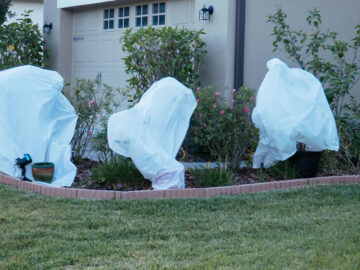Homeowners Insurance Declarations Page Guide

Understanding Your Coverage.
Reading insurance policy documents is about as fun as, well, reading insurance policy documents. Although it probably ranks somewhere between a visit to the dentist and cleaning your gutters, reviewing your declarations page and reading your insurance policy is a necessary evil if you want to ensure that your policy information is correct and you’re receiving the right amount of coverage for your home and belongings.
Fortunately, you don’t have to painstakingly read through every page of your Florida homeowners insurance policy to understand your key coverage. The Declarations (Dec) Page is a condensed overview that provides a quick overview of your homeowner’s insurance policy. Think of your Dec Page as the Cliffs Notes for home insurance coverage.
Use the tips below to better understand the information included in your home insurance policy Declarations Page. If you’re a Security First Insurance customer, you can locate your Dec Page in your policy packet or by logging into the My Security First customer portal.
Primary Information: Always make sure the information in this section is accurate. The mailing address and insured policy location are both located in this section. The insured policy address should exactly match the address of the property you’re insuring and not the mailing address.
Section I: This section displays your coverage liability limits and annual premium. The coverages in this section range from A-D depending on your policy type. Contact your local agent or insurance company for help if you are unsure about any of your coverage amounts.
Section II: This section displays your liability limits for Coverages E and F.
Forms and Endorsements: This section includes a list of the policy forms and endorsements that apply to your policy. Review these forms to better understand your policy. Your local agent can help you better understand items listed in this section.
Rating Information: This section displays factors that affect how your rate is calculated. Check the accuracy of these factors, especially year built, device credits, and usage. If you have devices that might make you eligible for insurance discounts, such as burglar alarms and automatic sprinklers, make sure they are listed here.
Deductibles: This is the amount you must pay before insurance will cover the damage caused by a covered peril. It’s important to note that residents of Florida, and most coastal states, have two different deductibles for their policy:
Do you know how much coverage you have? Your Declarations Page provides a quick summary of your policy and is also really handy when you’re comparing different insurance companies and prices. Now that you know how to read your policy, use the online instant quote below to see how much you could save on Florida homeowners insurance.
Also: Get an instant Florida homeowners insurance quote to see how much you could save on Florida home insurance.
 Homeowner Tips
Homeowner Tips
Florida winter freeze prep made simple: protect pets, plants, and pipes with smart, homeowner-friendly tips for cold snaps.
 Homeowner Tips
Homeowner Tips
Florida doesn’t get snow—but winter is still your best chance to prevent leaks, mold, and insurance headaches. Here’s a quick home check every homeowner should do now.
 Florida Lifestyle
Florida Lifestyle
Explore 7 Florida homeowners insurance products tailored to your needs—from condos to rentals to high-value homes. Get a quote today.